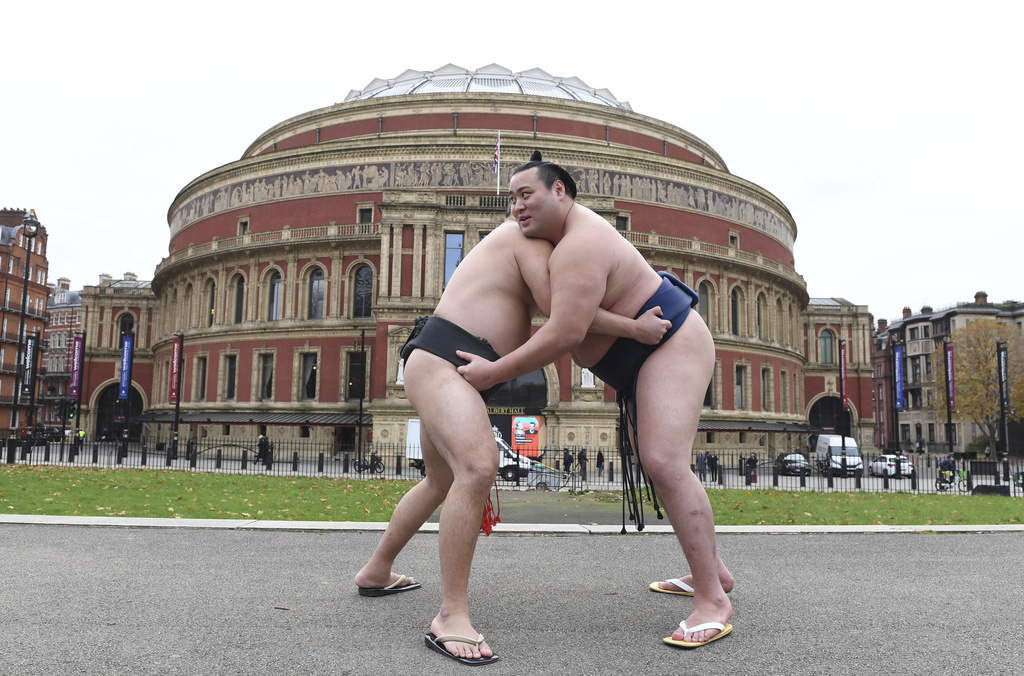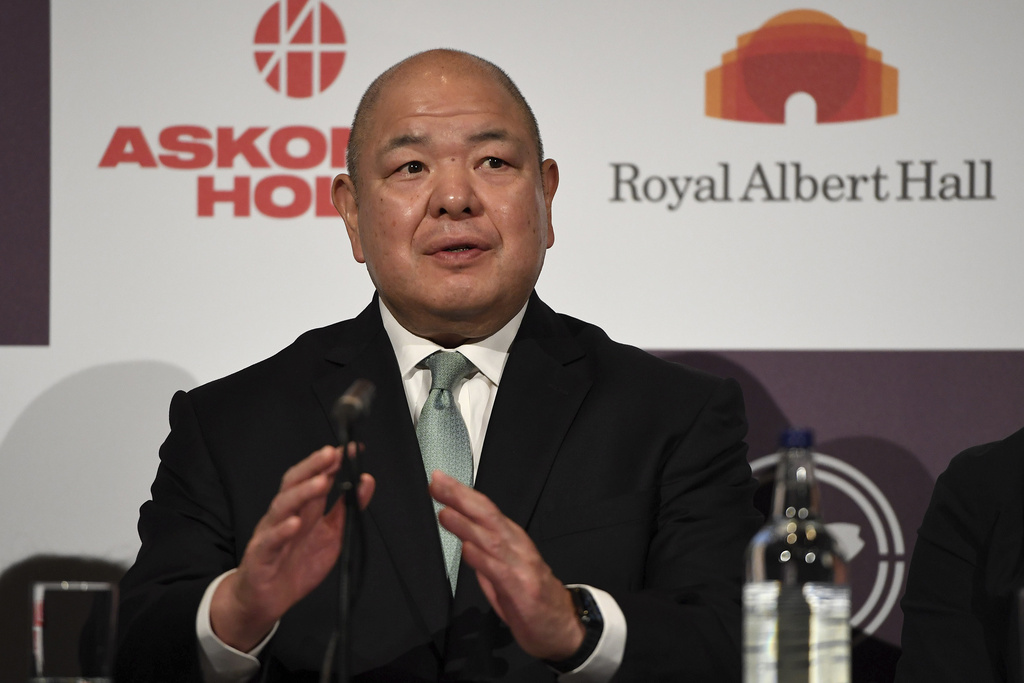
LONDON - Only once in the sport's 1,500-year history has a five-day Grand Sumo Tournament or "basho" been held outside Japan - and next year, London's Royal Albert Hall will repeat its feat of 1991.
To be as true to tradition as possible, the venerable concert hall will build a raised clay "dohyo" or fighting stage in the center of the auditorium to host the event, with spectators sitting around it on cushions and, further back, on chairs.
"We'll experience not just the sport, but the tradition and the ritual and the culture of sumo," said James Ainscough, chief executive of the Royal Albert Hall.
"So as well as it being an exciting sporting event, it's actually going to be a great cultural moment and a time for us to come across something we don't normally experience and to maybe learn something different from it from a different culture, and be challenged in the way we think as well."

Every night from Oct. 15-19, wrestlers from Japan's top sumo division will fight around 20 bouts to contest the London title, which will be overseen, appropriately enough, by the 1991 winner Hokutoumi, a former grand champion.
Nobuyoshi Hakkaku, as he is now known, now heads the Japan Sumo Association.
READ MORE: Sumo retirees play for laughs from tourists flooding back to Japan
"Back in 1991, as a performing wrestler, my main aim was to win the tournament. But coming back as chairman, now the most important part is to bring Japanese tradition and Japanese culture to the British public," Hakkaku said via a translator.
"Sumo itself has not changed throughout the course of history. I have no worries because I am confident people will appreciate or take something back by watching this tournament."


